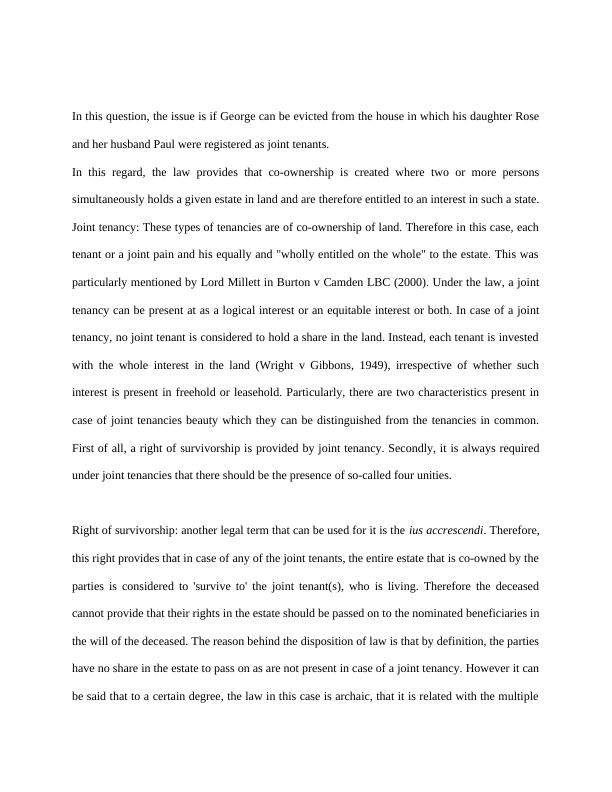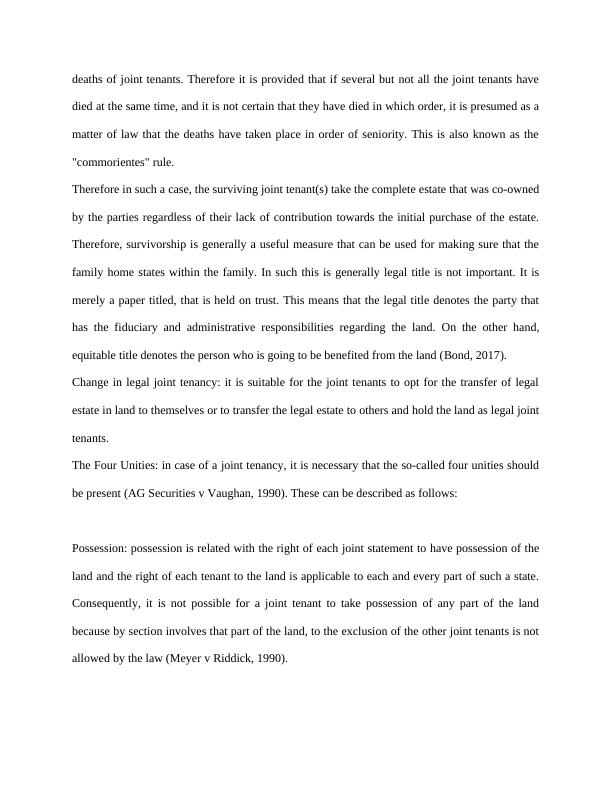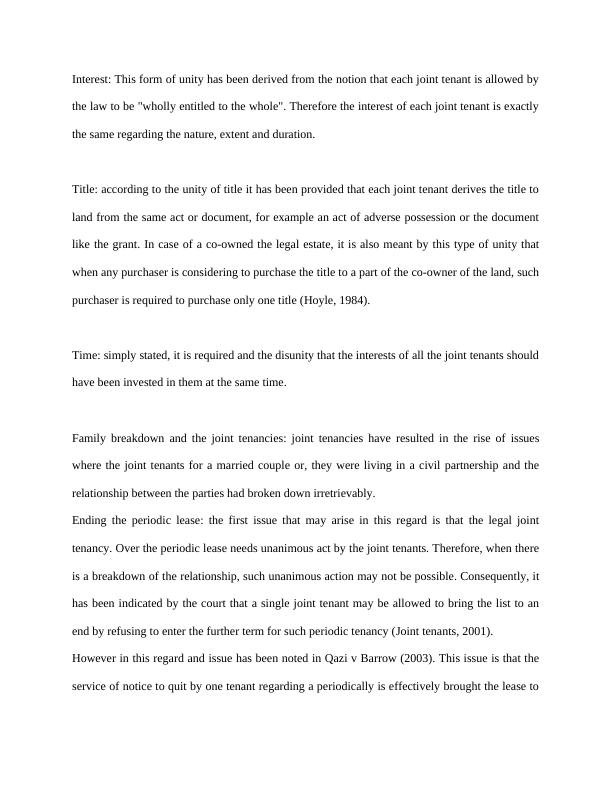Can George be Evicted from the House?
7 Pages2352 Words223 Views
Added on 2023-04-21
About This Document
This article discusses the legal implications of joint tenancy and whether George can be evicted from the house registered under his daughter and son-in-law's names. It explains the concept of joint tenancy, the right of survivorship, and the four unities required for joint tenancy. It also compares joint tenancy with tenancy in common and discusses the implications of family breakdown on joint tenancies. The article concludes that Paul can ask George to leave the house based on the principles of joint tenancy.
Can George be Evicted from the House?
Added on 2023-04-21
ShareRelated Documents
End of preview
Want to access all the pages? Upload your documents or become a member.
Legal implications of joint tenancy and tenancy in common in Singapore
|7
|2469
|412
Joint Tenancy and Severance of Joint Tenancy in Singapore: A Comparative Analysis
|7
|3679
|377
Property Law in Australia - Assignment
|10
|3308
|30
Impact on the Legal Estate and Equitable Interests
|8
|3076
|279
Legal Issues in Property Law: Case of John Daniel Cummins v Cummins HCA 6 [72], 2006
|8
|2678
|386
Law of Property Act, 1925
|6
|1299
|75



